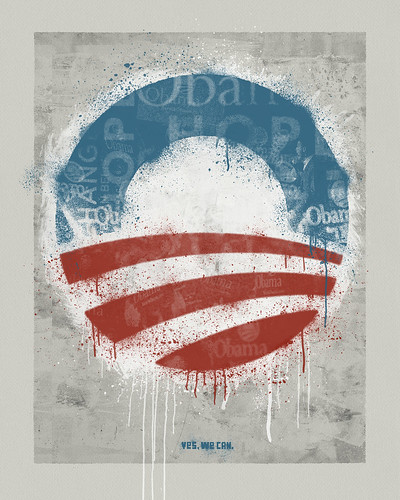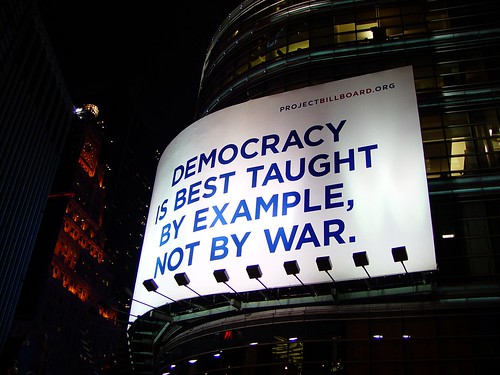I visited BeFunky.com and Quizlet. I thought that they were both very interesting. I really liked befunky. I had fun taking a picture of my son and playing with it. I do not really see how I could use it in my teaching outside of making the material more "snappy". However, I will use it personally to make cards and funky paper for gifts, etc.
Quizlet was actually a bit of a disappointment. I thought that it would be great to use for helping my students prepare for their exams. I suppose that it could still be used for such, but it was not that interesting. It seems like a lot of work just to make glorified flashcards. If flashcards are all that we are making, then my students can do that on thier own. I did consider using it for actually assigning quizzes to students. It would be a whole lot easier to simply have my students take a quiz online and have the results sent to me. The only problem with that is there are not enough computers available at any given time to make this a viable option.
Monday, April 27, 2009
Tuesday, April 14, 2009
Thing #5b
I chose to follow one of my New York Times articles on my reader. I have heard lots of discussion on theradio about the pirate ships off the coast of Somalia. So I chose to follow that feed.
The article was interesting. I talked about how the pirates are stepping up thier attacks on American and European ships in that region. I am curious to see how it develops and what kind of effect it has on our economy and international trade.
The article was interesting. I talked about how the pirates are stepping up thier attacks on American and European ships in that region. I am curious to see how it develops and what kind of effect it has on our economy and international trade.
Monday, April 13, 2009
Oops
I forgot to include the citations for the pictures on the slide show. Here they are now.
Photo # 1 Uploaded on March 4, 2008 by Seetwist
Photo # 2 http://www.flickr.com/photos/brianglanz/2555770034/ This photo was originally titled "Thieves Lair, 2004" Uploaded on June 6, 2008 by brian glanz
Photo # 3 http://www.flickr.com/photos/withayou/3006459630 Uploaded on November 5, 2008by withayou
Photo # 4 Inaguration photo Uploaded on January 20, 2009
by jurvetson
Saturday, April 11, 2009
Thing 12
At first this task seemed quite daunting. However, the program itself was quite easy to use. It didn't take nearly as long as I initially thought that it would. Once again, the hardest part was using flickr. I actually would use this in my teaching. The slide.com program would be good to utilize when I update my powerpoint lectures. I think I may try to use this again for my personal use, just to get more practice with it.
Thursday, April 9, 2009
Thing 10
 http://www.flickr.com/photos/withayou/3006459630
http://www.flickr.com/photos/withayou/3006459630Uploaded on November 5, 2008by withayou
 http://www.flickr.com/photos/brianglanz/2555770034/ This photo was originally titled "Thieves Lair, 2004" Uploaded on June 6, 2008 by brian glanz
http://www.flickr.com/photos/brianglanz/2555770034/ This photo was originally titled "Thieves Lair, 2004" Uploaded on June 6, 2008 by brian glanzI am torn about flicker. I really like that there are so many photos to choose from. However, I found it difficult to find pictures that matched my theme of "presidential election". I found that I had to spend over an hour just to find pictures that were relevant. If I typed in presidential election, then I got pages of elections from all over the world. When I narrowed the search I found that if I changed the tag even slightly a whole new set of pictures would come up. In addition, when I tried to copy the pictures to my blog I found that the directions we were given were not always presented in that format on the website. This made the task even more difficult. I wish that flicker had a more uniformed layout. It was not user friendly.
I am not saying that I will never use it, but I found that simply googling images is much easier and yields better results.
Thing #9
Frequently, I will use a clip from a movie or a photograph from a particular point in history to illustrate a point that I am trying to make. I use photos with my class to get them to imagine what it would be like to live and work during an era.
I think that most students do not think about copyright or about getting permission to use music. We live in a world where kids think nothing of illegally downloading music and movies without asking for permission, paying a fee, or even giving credit to the original creator. I think that this is a problem with technology today. Movies, music, etc are too accessible and they are not protected enough. Even when we require our students to cite their work, they will plagiarize the majority of it. The saddest part is that they do not even realize it.
I think that when I assign a project or a paper I will discuss fair use and have my students complete a Fair Use reasoning tool WS. This may not fix the problem, but at least it might make them more conscious that they are taking copy written material.
I think that most students do not think about copyright or about getting permission to use music. We live in a world where kids think nothing of illegally downloading music and movies without asking for permission, paying a fee, or even giving credit to the original creator. I think that this is a problem with technology today. Movies, music, etc are too accessible and they are not protected enough. Even when we require our students to cite their work, they will plagiarize the majority of it. The saddest part is that they do not even realize it.
I think that when I assign a project or a paper I will discuss fair use and have my students complete a Fair Use reasoning tool WS. This may not fix the problem, but at least it might make them more conscious that they are taking copy written material.
Thing #7
I explored 2 wiki's from the list http://www.ahistoryteacher.com/~ahistory/apwhreview/index.php?title=Holocaust_Wiki_Project and http://schoolsthen.wikispaces.com/ provided and then my wife let me onto her school's wiki http://countyline.wikispaces.com/so I could compare. I thought that the first 2 wiki's were interesting project ideas for students. However, I found that the one my wife showed me was more useful. It contained teaching tips, ideas, and other resources. It was also very well organized (by grade level and department. The Holocaust project was well organized, but it was not that different from other pencil and paper projects that I have seen over the years. I guess that is the point-the use of technology can be as complicated or as easy as you want it to be. The second wiki was not organized. It was just a list. I thought that this was a waste of technology. Certainly, there are dozens of other formats that the information could have been presented in.
I think I could use a wiki. It is just a technology that I am not comfortable with. I would be more willing to use the professional wiki until I felt more at ease with the technology before I used it in the classroom.
I think I could use a wiki. It is just a technology that I am not comfortable with. I would be more willing to use the professional wiki until I felt more at ease with the technology before I used it in the classroom.
Tuesday, April 7, 2009
Thing #5a
I found that having to sift through many of the links to find ones that I would want on my RSS was tedious. However, now that they are there I actually like it. My google reader recommended some other feeds that I might want to peruse. When I browsed for blog information on a band that I follow, I was surprised to see so many feeds pop up. The same was true when I searched for school related topics as well. I remember having to sift through tome after tome in the library to glean the articles and information that I needed for papers. Now it is at my fingertips. Kids today have it way too easy.
On a related note. I found it very interesting that the Library of Congress is now posting lectures and information on You Tube. I did not get to explore it as long as I would have liked, but I certainly have it fed to my computer when something new and interesting appears.
On a related note. I found it very interesting that the Library of Congress is now posting lectures and information on You Tube. I did not get to explore it as long as I would have liked, but I certainly have it fed to my computer when something new and interesting appears.
Thing #3
http://www.nytimes.com/2009/04/07/business/economy/07capacity.html?partner=rss&emc=rss
I rarely get time to check all the news sources that I want to check. I enjoy having the topics in which I am interested fed right to my computer. This is definitely going to cut down on the amount of time I am spending sifting through the various news sources.
Obviously, I follow the economy so that I am able to explain and discuss economic principles with my students. Having statistics and links to other websites like the Department of Labor helps me explain the far reaching and long lasting effects of our current economic situation.
I rarely get time to check all the news sources that I want to check. I enjoy having the topics in which I am interested fed right to my computer. This is definitely going to cut down on the amount of time I am spending sifting through the various news sources.
Obviously, I follow the economy so that I am able to explain and discuss economic principles with my students. Having statistics and links to other websites like the Department of Labor helps me explain the far reaching and long lasting effects of our current economic situation.
Monday, April 6, 2009
Thing #2
I was struck by a couple of thing when I looked at the blogs. First, they were all very casual. Even Anne Davis' blog http://anne.teachesme.com/2007/01/17/rationale-for-educational-blogging/which was the most "academic" of the blogs was very informal. It seemed more like a conversation between learned friends than an expert sharing her expertise. The responses to the blogs read the same way. This bothers me and it inspires me at the same time. It bothers me because I feel that it signifies the death of correct, formal English. Yes, I know it has been dying for a while now, but blogging takes it down a few pegs. At the same time, the knowledge base is so much more vast than any one person could ever possess. It is every bit as interesting to see the links that people will attach to thier comments as it is to read the original article. It is like sitting at a round table and having everyone contribute thier thoughts and ideas. It is the modern application of the Socratic method at its finest. So the real question is, which is more important: the preservation of our language or the development of intellectual inquiry?
Thing #1-B
Web 2.0 has incredible potential to both contribute to the learning experience and the ability to undermine it. I would love to have my students get involved in blogs on economic issues that affect them now. Through the ever evolving web, they could take our classroom discussions and see how they compare or relate to what is currently happening in our nation. Frequently, I will read an article or blog on a news source (like CNN.com) that directly relates to what we are discussing. I can take that information back to my students and enhance our discussion. I can also utilize the Web by having them do the same. I would like to use this tool more. However, one of the most dangerous things about the web is that anyone can pass themselves off as an expert. I have seen students report completely inaccurate information as gospel simple because they read it on a blog. I want my students to be curious about the world around them, but at the same time I hope that they are more discerning than they sometimes seem to be.
Thing #1-A
Hello. My name is Todd Joiner. I teach Economics and American Government at AHS. I have been in education for 15 years. I am not the most technological person, and I feel that it is time that I join the 21st century. The modes in which we deliver material to our students is evolving and if I do not evolve with them, then I am doing them a disservice in the long run. I hope to not only gain a basic understanding of how blogging works, but I also hope to be able to integrate it into my teaching in the future.
Subscribe to:
Comments (Atom)




